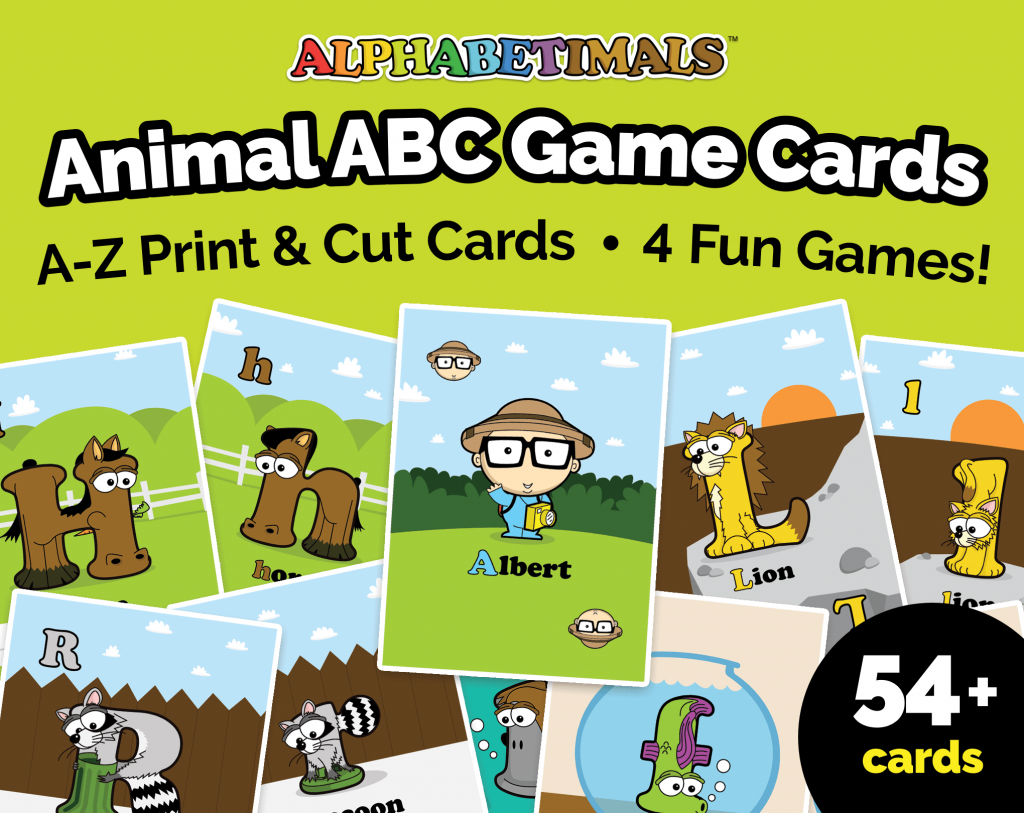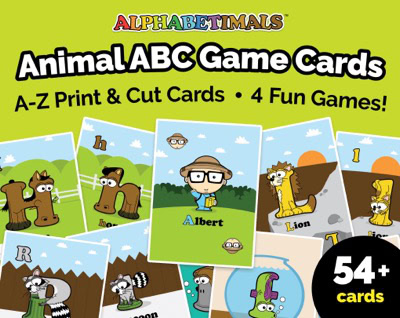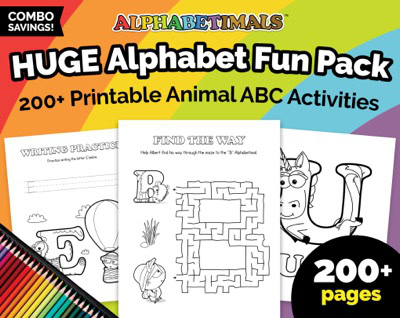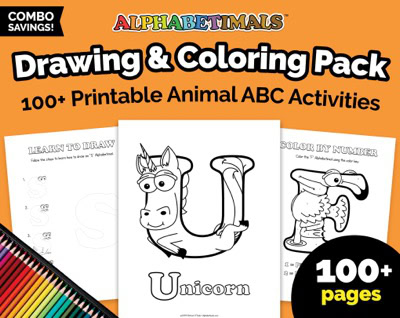Looking for a fun, educational card game for a preschooler or kindergartner? Try our easy Animal ABC Game Cards, where you get 4 games-in-1. Go Fish, Old Maid, uppercase and lowercase matching and more!
4-in-1 Card Game for Kids – Go Fish, Old Maid, Matching and More!
“I have a student who LOVES animals and this is a great way for him to practices letter recognition.”
– Jennifer b
Learning the ABCs is fun with the Alphabetimals! In this beautifully-illustrated take on “Old Maid”, players pair letter-shaped animals with their adorable lower-case babies, while trying to avoid getting stuck with Albert.
To get the professional printed and packaged version, order them now here on the DriveThruCards website. A portion of the proceeds from every sale will go to the David L. Hoyt Education Foundation, which promotes play-based and collaborative learning.
Up for printing and cutting them yourself? Save money and download our high quality print-at-home templates here on TeachersPayTeachers.com.
How to Play the Card Games
“Old Maid” Instructions
Learning the ABC’s is fun with the Alphabetimals! In this beautifully-illustrated take on “Old Maid”, players pair letter-shaped animals with their adorable lower-case babies, while trying to avoid getting stuck with Albert.
Objective
The goal is to form and discard pairs of matching parent and baby animals, and not to be left with the odd card (Albert) at the end.
The Deal
Any player shuffles the pack and deals them around, one at a time to each player, until all the cards have been handed out. Players do not need to have an equal number of cards.
The Play
Each player removes all parent/baby (uppercase/lowercase) pairs from their hand face down. The dealer then offers their hand, spread out face down, to the player on their left, who draws one card from it. This player discards any pair that may have been formed by the drawn card. They then offer their own hand to the player on their left. Play proceeds in this way until all cards have been paired except one – the Albert card, which cannot be paired.
Adapted from Bicycle Cards website.
“Memory Matching” Instructions
This card game is a great game for the whole family. Younger players can often compete with older players because they can be very good at memory-based games.
Objective
The objective is to collect the most pairs of parent and baby animal cards.
The Deal
Preselect a number of matching parent and baby animal pairs from the main deck. The children’s age should determined how many animal pairs you want to play with at one time, slowly increasing the number as they become more experienced with the game. Shuffle the cards and lay them on the table, face down, in rows.
The Play
The youngest player goes first. Play then continues in a clockwise direction.
On each turn, a player turns over any two cards (one at a time) and keeps them if the cards make a parent/baby animal match (for instance, two Lions).
If they successfully match a pair they get to keep the cards, and that player gets another turn.
When a player turns over two cards that do not match, those cards are turned face down again (in the same position) and it becomes the next player’s turn. The trick is to remember which cards are where. The person with the most pairs at the end of the game wins.
Adapted from the Help My Kid Learn website.
“Go Fish” Instructions
Every kid loves playing Go Fish – even if the animals aren’t fish at all! Try this fun animal version where pairs are made by matching uppercase parents to lowercase babies.
Objective
The goal is to win the most matches of parent and baby animal cards.
The Deal
The dealer completes the cut and deals the cards clockwise one at a time, face down, beginning with the player to their left. If two or three people are playing, each player receives seven cards. If four or five people are playing, each receives five cards. The remainder of the pack is placed face down on the table to form the stock.
The Play
The player to the left of the dealer looks directly at any opponent and says, for example, “Do you have a Kangaroo?”. The player who is “fishing “must have at least one card of the animal they asked for in their hand. The player who is addressed must hand over all the cards requested. If they have none, he says, “Go fish!” and the player who made the request draws the top card of the stock and places it in their hand.
If a player gets one of the cards he asked for, they are entitled to ask the same or another player for a card. So long as they succeed in getting a match, their turn continues. When a player makes a match with the parent and the baby animal, they place the match on the table face up in front of them, and play again.
If the player goes fishing without getting a match, the turn passes to their left.
The game ends when all matches have been made. The winner is the player with the most matching pairs of parent and baby animals. During the game, if a player is left without cards, they may (when it’s their turn to play), draw from the stock and then ask for a matching card from the next player. If there are no cards left in the stock, they are out of the game.
Adapted from Bicycle Cards website.
All animals A-Z
Animal phonics alphabet
Animals that start with common phonics digraphs
Animal facts for kids
Other animal collections
Try our Printable Alphabet Worksheets! Download a FREE SAMPLE or preview all 200+ on Etsy.com or TeachersPayTeachers.com






